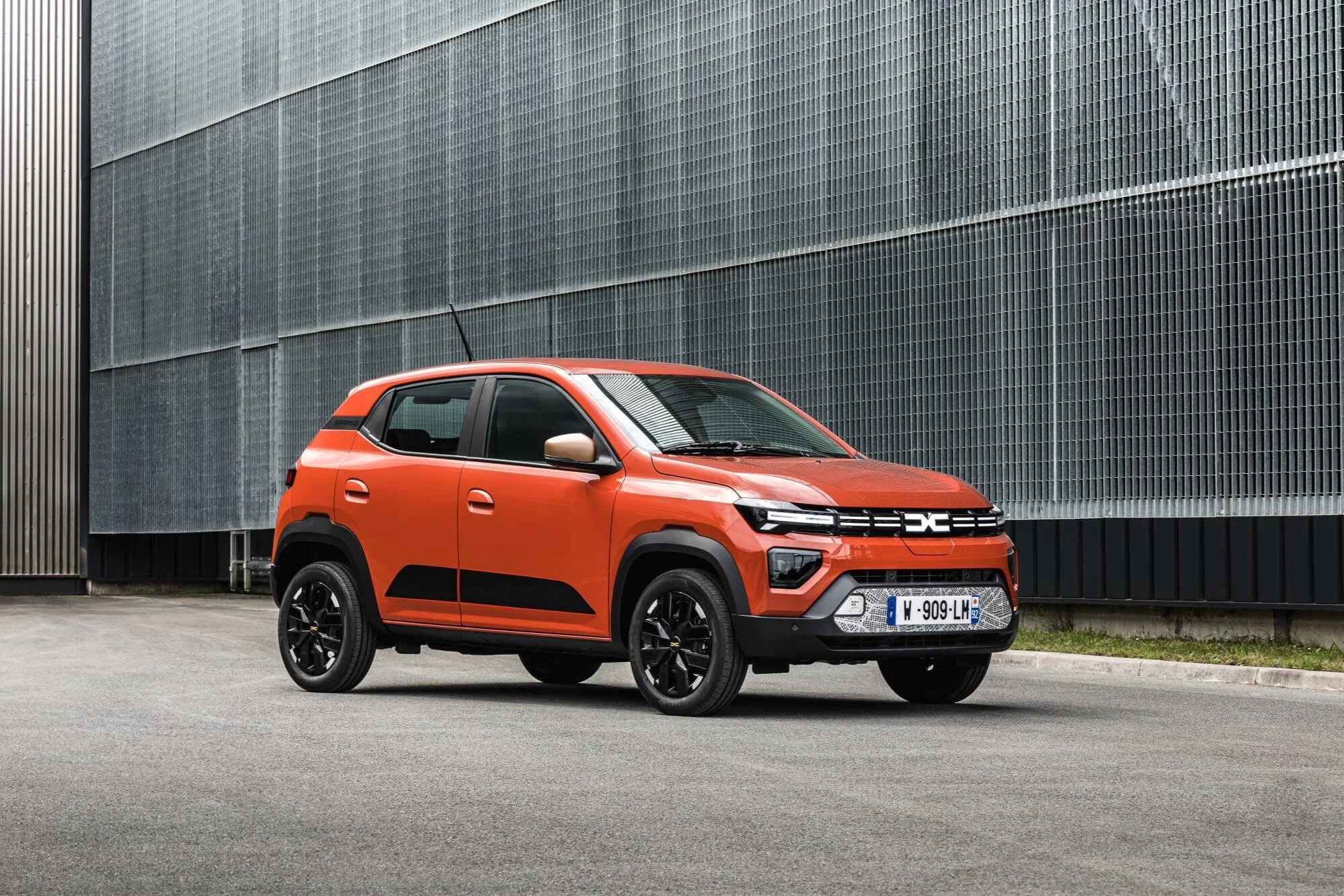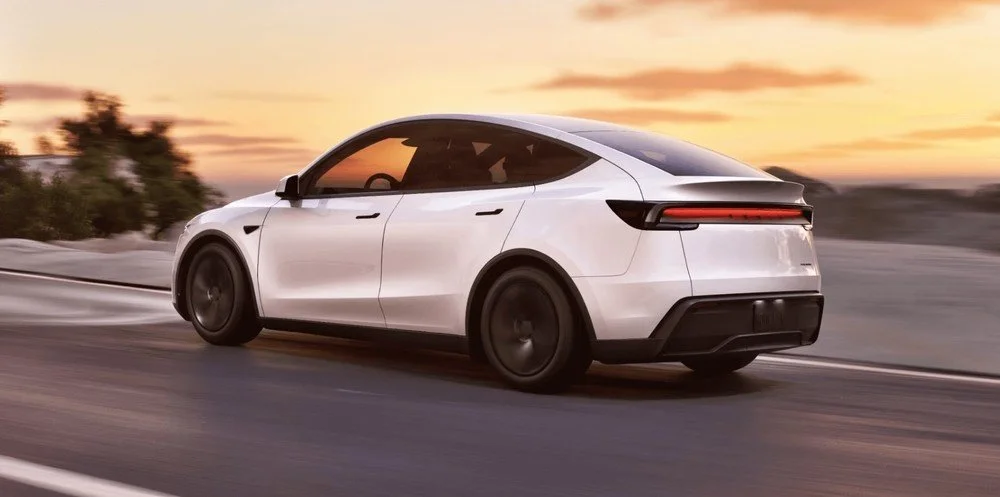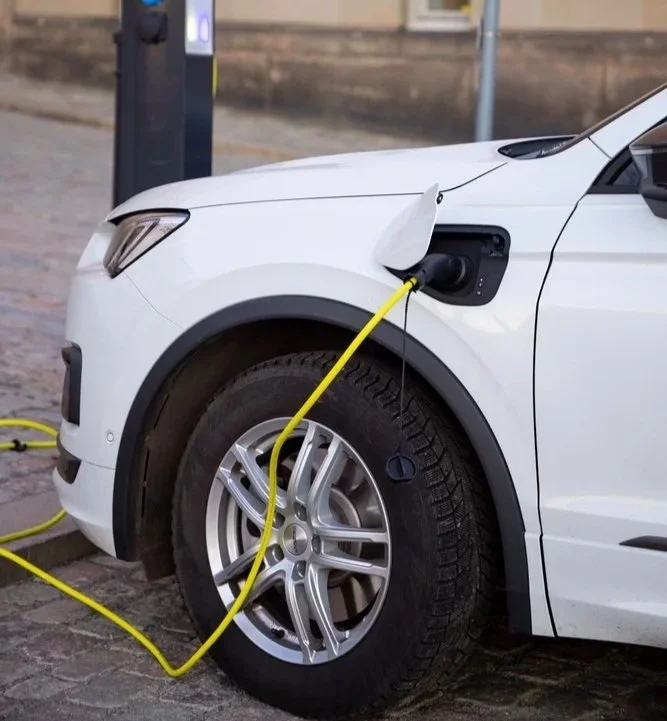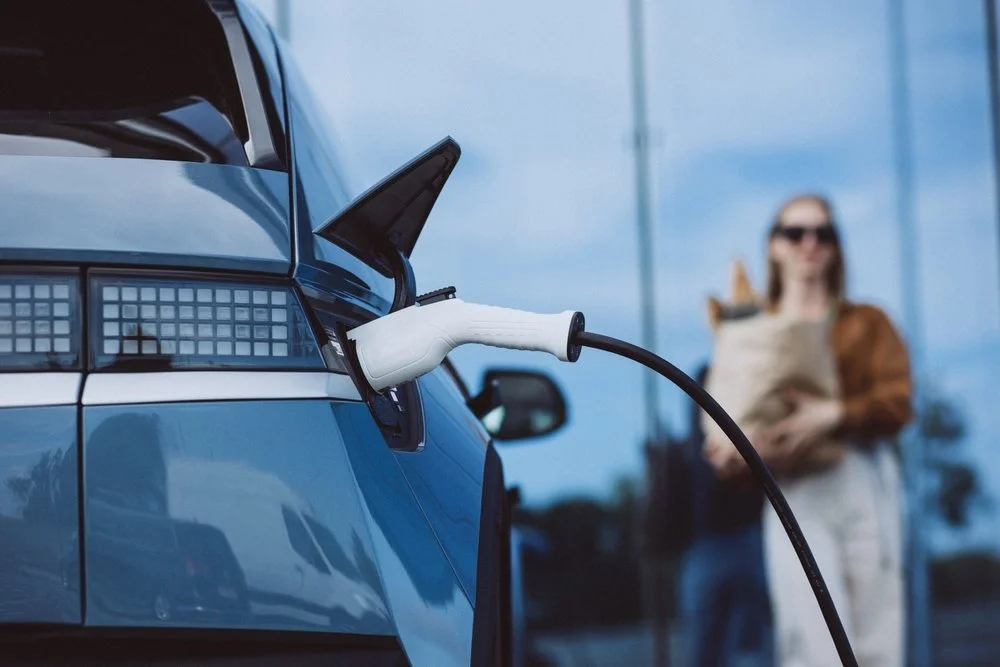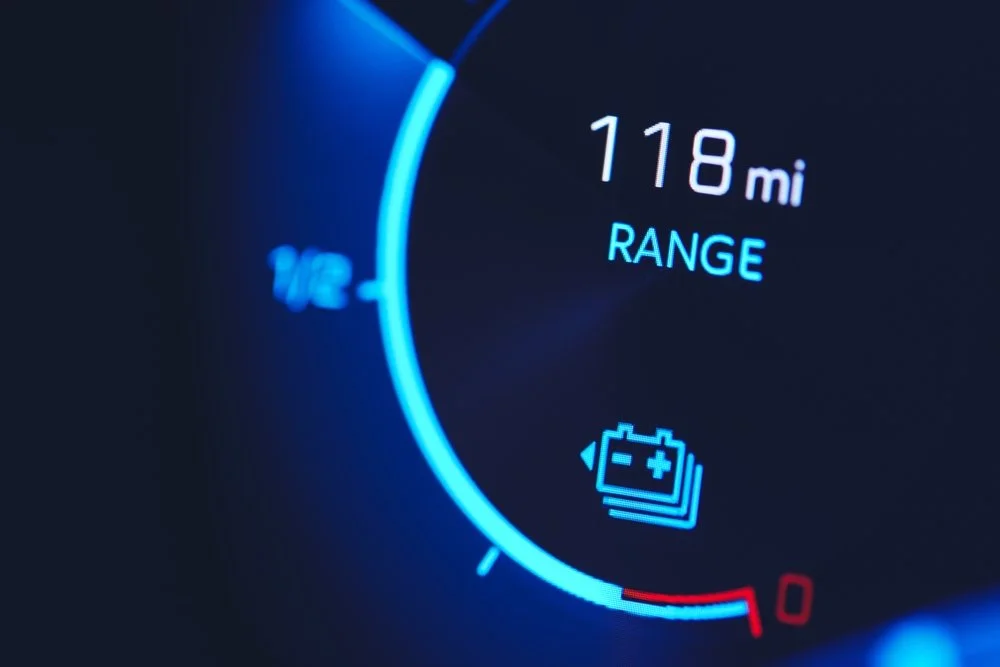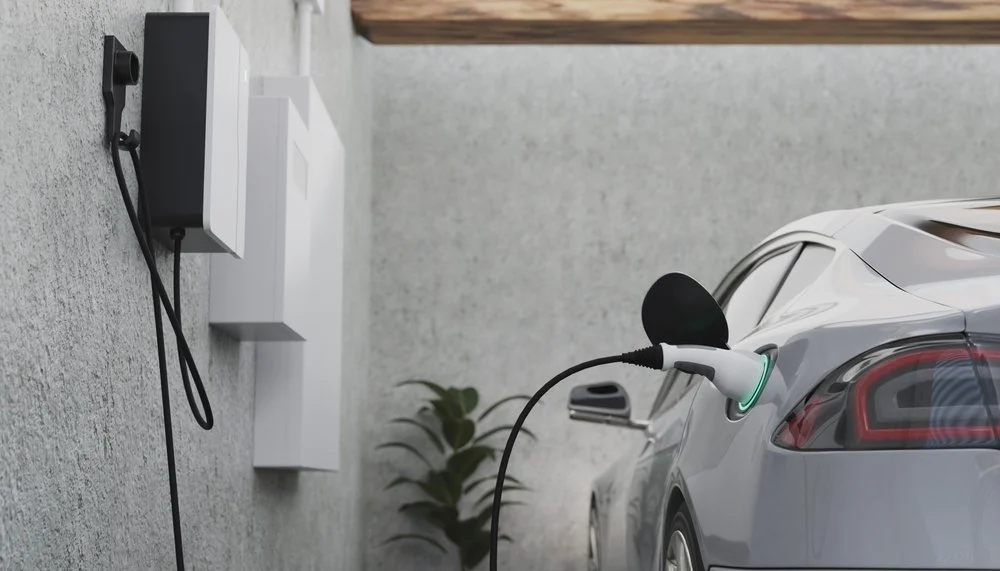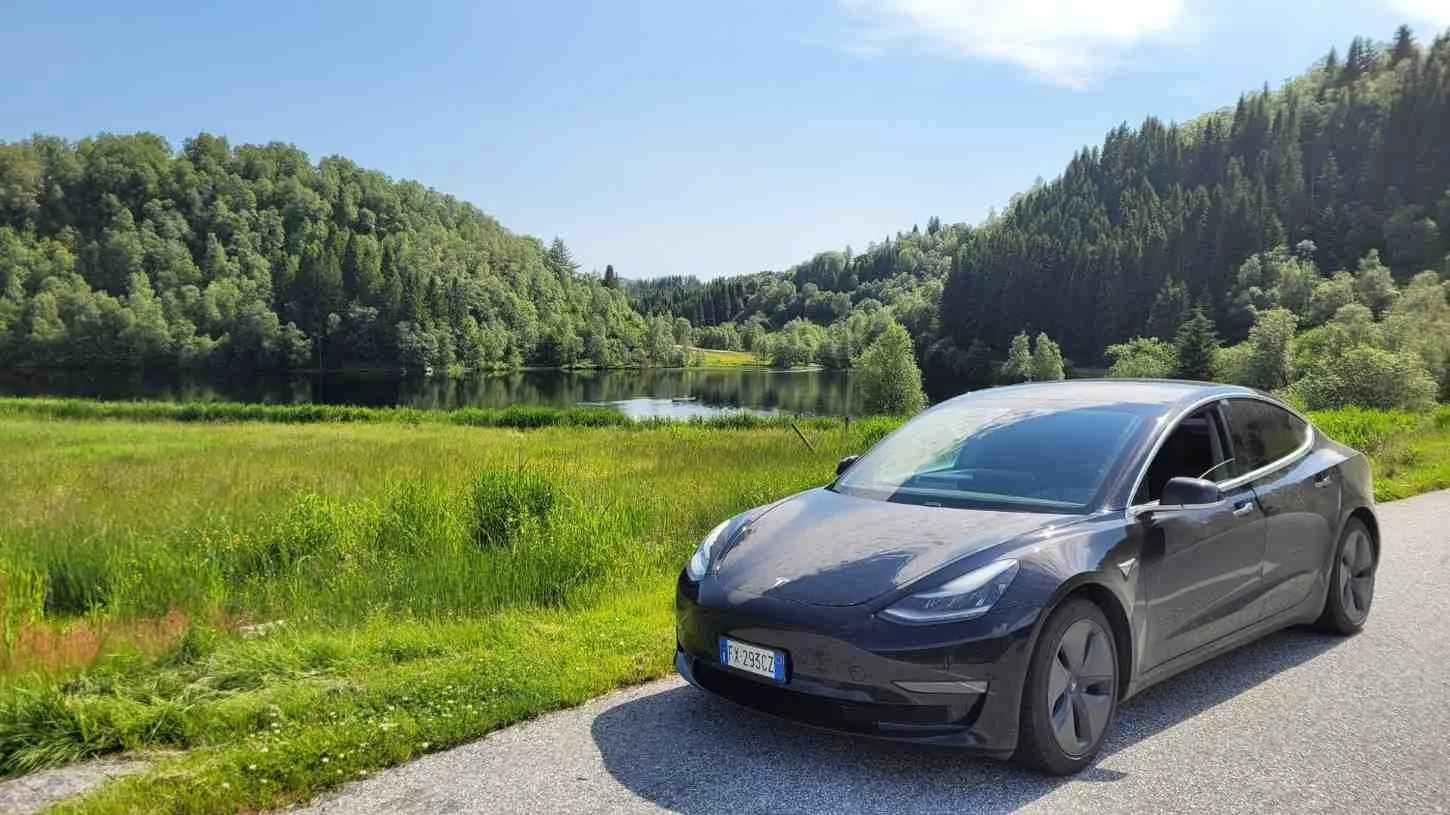How Much Electric Car Range Do You Actually Need? The Complete Guide
Source: Shutterstock
One of the biggest questions potential electric car buyers ask is: "How much range do I actually need?" It's a valid concern that often leads to range anxiety and overthinking the purchase decision. Many drivers assume they need 300+ miles of range, when in reality, their actual driving patterns suggest otherwise.
Through electric car salary sacrifice schemes, drivers can access both shorter and longer-range EVs with significant cost savings. Understanding your real range requirements helps you choose the perfect electric car without overpaying for unnecessary capability or compromising on features that matter more to your daily experience.
This comprehensive guide examines real UK driving data, explores different range categories, and helps you determine exactly how much electric car range you need for your lifestyle.
Do Most UK Drivers Need 300+ Miles of EV Range?
No, most UK drivers do not need 300+ miles of EV range. According to the UK Department for Transport, the average driver covers just 20 miles per day and 142 miles per week, making a range of 200-250 miles sufficient for daily needs.
Average UK Driving Habits:
Daily: ~20 miles
Weekly: ~142 miles
Long trips: 2-3 times per year over 100 miles
Sufficient Range for Most Drivers:
200-250 miles meets weekly driving needs
Home charging simplifies daily use
Consumer perception often driven by range anxiety rather than real needs
Before diving into range requirements, it's crucial to understand how people actually drive in the UK. The data reveals some surprising insights that challenge common assumptions about range needs.
The Reality of Daily Driving
According to the Department for Transport, the average UK driver covers just 20 miles per day. This figure includes commuting, shopping trips, school runs, and leisure driving. Even factoring in above-average driving days, most people rarely exceed 50 miles in a single day during normal routines.
More telling is that 95% of all UK car journeys are under 25 miles. This means that even a modest 150-mile range EV could handle nearly every single journey you make without charging stops. Electric car range has improved dramatically, with even entry-level EVs now offering 200+ miles on a single charge.
Weekly and Monthly Driving Patterns
Looking at weekly patterns, the average UK driver covers approximately 140 miles per week. This means a 200-mile range EV could easily handle an entire week of typical driving with range to spare. Monthly mileage averages around 600-800 miles, suggesting that even with home charging just twice per week, most drivers would never approach their vehicle's maximum range.
Long Journey Frequency
Data shows that UK drivers undertake journeys over 100 miles just 2-3 times per year on average. These longer trips - typically holidays or family visits - represent less than 5% of total annual mileage. This raises an important question: should you choose your everyday car based on infrequent long journeys, or optimise for daily use and plan accordingly for longer trips?
What EV Range Covers the Average UK Commute?
For the average UK commute of 15-30 miles daily, even short-range electric cars with 150-200 miles provide 5-7 days of driving per charge. Through electric car salary sacrifice schemes, drivers can access appropriate range vehicles with 20-50% cost savings.
Range Categories Explained
Understanding different range categories helps identify which type of electric car suits your needs and budget through company electric car schemes.
Short Range EVs (150-200 miles)
Typical Models:
Dacia Spring (140 miles)
MINI Electric (145 miles)
Honda e (137 miles)
Mazda MX-30 (124 miles)
Perfect For:
City and suburban driving
Daily commutes under 30 miles
Second cars or urban families
Cost-conscious buyers prioritising affordability
Real-World Performance: In typical UK conditions, these vehicles deliver 120-160 miles of real-world range. For the average UK driver covering 20 miles daily, this provides 6-8 days of driving per charge. Even factoring in cold weather range reduction, most drivers would charge just twice per week.
Short-range EVs often offer the best value through salary sacrifice schemes, with monthly costs as low as £150-250 after tax savings. The best small electric cars in this category provide excellent efficiency and low running costs.
Medium Range EVs (200-280 miles)
Typical Models:
Volkswagen ID.3 (263 miles)
Nissan Leaf (239 miles)
Hyundai IONIQ 5 (238 miles)
Polestar 2 (270 miles)
Perfect For:
Most UK drivers and families
Regular longer commutes (30-60 miles)
Weekend trips and occasional long journeys
Balanced range, features, and cost
Real-World Performance: These vehicles typically deliver 180-240 miles in real-world conditions, providing exceptional flexibility for UK driving. They handle daily driving for 1-2 weeks on a single charge while offering sufficient buffer for spontaneous longer trips.
Medium-range EVs represent the sweet spot for most drivers, offering practical range without premium pricing. Through electric car salary sacrifice, models like the ID.3 become highly affordable with comprehensive insurance and maintenance included.
Long Range EVs (280+ miles)
Typical Models:
Tesla Model 3 Long Range (358 miles)
Mercedes EQS (453 miles)
BMW iX (324 miles)
Tesla Model Y Long Range (331 miles)
Perfect For:
High-mileage drivers (25,000+ miles annually)
Regular long-distance travel
Company car drivers covering large territories
Premium buyers prioritising maximum flexibility
Real-World Performance: Long-range EVs deliver 250-350+ miles in typical conditions, providing exceptional flexibility and peace of mind. They can handle multiple days of above-average driving or single journeys to most European destinations without charging stops.
However, this capability comes at a premium. Through Tesla salary sacrifice or other premium brand schemes, these vehicles become more accessible, but buyers should carefully consider whether the extra range justifies the additional cost.
How Do I Calculate My Personal EV Range Needs?
Determining your actual range needs requires honest assessment of your driving patterns, not worst-case scenario planning.
Calculate your EV range needs by tracking daily driving for 2-3 weeks, then adding a 30% buffer. Most UK drivers discover they need far less range than expected - typically 200-280 miles handles all regular driving with occasional longer trips.
Daily Driving Assessment
Commuting Requirements: Calculate your daily round-trip commute distance. Add 20-30% buffer for detours, traffic, and shopping stops. For most UK commuters, this totals 30-50 miles daily - easily handled by any modern EV.
Regular Local Driving: Consider school runs, shopping trips, and regular activities. Most families find their daily local driving adds 10-20 miles to commuting requirements. Even active families rarely exceed 70-80 miles daily during normal routines.
Weekly Driving Patterns: Track your weekly mileage for several weeks to identify patterns. Most drivers discover significant day-to-day variation but consistent weekly totals. Understanding these patterns helps determine charging frequency requirements.
Long Journeys
Annual Long Trip Frequency: Count how many times per year you drive over 150 miles in a single day. For most UK drivers, this occurs just 2-6 times annually - holidays, family visits, or business trips.
Journey Destinations: Identify your most common long-distance destinations. Check charging infrastructure along these routes using the best EV charging apps. You might discover that charging stops are more convenient than expected.
Alternative Transport Options: Consider whether long journeys could occasionally use alternative transport - trains for city visits, flights for distant holidays, or rental cars for specific trips. This flexibility might reduce your range requirements significantly.
Seasonal Variations
Winter Range Reduction: Electric car range typically reduces 10-20% in cold weather due to heating requirements and battery efficiency changes. Electric cars in winter provides comprehensive guidance for cold weather driving.
Factor this seasonal variation into range calculations. If you need 200 miles of summer range, consider 220-240 miles of rated range to maintain winter flexibility.
Holiday and Peak Periods: Consider whether your driving increases during holidays or specific seasons. Summer holiday touring or Christmas family visits might temporarily increase range requirements.
Does Home Charging Reduce EV Range Requirements?
Home charging fundamentally transforms how you think about electric car range, making it less critical than many assume.
Yes, home charging dramatically reduces EV range requirements. Starting each day with a "full tank" means range anxiety becomes irrelevant for daily driving. According to ZapMap's 2024 survey, 80% of EV owners have home charging access.
Home Charging Benefits:
Full battery every morning eliminates daily range concerns
EV-specific energy tariffs reduce charging costs by 60-70%
Through The Charge Scheme, employees can salary sacrifice charging costs
The "Full Tank" Every Morning
With home charging, you start each day with maximum range - equivalent to having a petrol station in your garage. This eliminates the petrol car mindset of driving until nearly empty before refuelling.
Most EV owners describe this as liberating. You never need to monitor range for daily driving because you always begin with full capacity. Types of home EV chargers explains installation options and costs.
Charging Frequency vs Range
With home charging, vehicle range becomes less about maximum capacity and more about charging frequency preferences:
150-mile range: Charge every 3-4 days
200-mile range: Charge twice weekly
250+ mile range: Charge weekly or less
Many drivers find charging 2-3 times weekly preferable to maximise off-peak electricity rates and maintain optimal battery health.
Cost Implications of Home Charging
How much does it cost to fully charge an electric car at home reveals dramatic cost advantages over petrol. Home charging typically costs 3-5p per mile compared to 15-20p per mile for petrol, making frequent charging financially attractive.
Through The Charge Scheme, employees can salary sacrifice their charging costs, saving 20-50% on home and public charging expenses.
Range vs Other Important Factors
While range captures attention, other factors often matter more for daily satisfaction and long-term ownership experience.
Charging Speed vs Maximum Range
For drivers without home charging, charging speed becomes more important than maximum range. A 200-mile range EV that charges rapidly (20-30 minutes for 10-80%) provides more practical flexibility than a 300-mile range vehicle requiring 45-60 minutes to charge.
How long does it take to charge an electric car explains charging speeds and their real-world implications.
Interior Space and Practicality
Many drivers discover that interior space, boot capacity, and general practicality matter more than maximum range for daily satisfaction. The best electric family cars prioritise space efficiency and family-friendly features over maximum range.
Technology and Features
Advanced driver assistance, infotainment systems, and comfort features often provide more daily value than extra range. Through salary sacrifice schemes, you can often access higher specification vehicles with better technology rather than prioritising range alone.
Running Costs and Efficiency
What are the most efficient electric cars often provide better long-term value than maximum range vehicles. High efficiency reduces charging costs and extends real-world range from any given battery capacity.
Do Long-Range EVs Cost More Through Salary Sacrifice?
Long-range EVs cost £100-300 more monthly through salary sacrifice, but the 3% Benefit-in-Kind rate and 20-50% tax savings make premium models surprisingly affordable. The cost difference often matters less than choosing the right range for your actual needs.
Understanding the cost implications of different range choices helps inform your decision, especially through salary sacrifice schemes.
Purchase Price Differences
Long-range EVs typically cost £5,000-15,000 more than shorter-range equivalents. Through electric car salary sacrifice, this translates to £100-300 monthly payment differences after tax savings.
Running Cost Implications
Longer-range EVs often have larger batteries and higher consumption, slightly increasing charging costs. However, the difference is usually minimal compared to the purchase price premium.
Depreciation Considerations
Market data suggests long-range EVs hold their value better, partially offsetting higher initial costs. However, through salary sacrifice schemes, depreciation becomes the leasing company's concern rather than yours.
Insurance and Tax Benefits
All electric cars benefit from the same 3% Benefit-in-Kind rate through salary sacrifice, regardless of range. This means range becomes a personal preference rather than a tax consideration.
Real-World Range Experiences
Learning from actual EV owners provides valuable insights into range requirements and satisfaction levels.
Do Rural Drivers Need Long-Range EVs?
Rural drivers don't automatically need long-range EVs, but should consider charging infrastructure accessibility. According to Zap-Map data, the UK has 66,000+ public charging points across 34,000+ locations, with coverage extending to most rural areas.
Rural EV Considerations:
Check local charging infrastructure using best EV charging apps
Consider workplace charging if available
Home charging installation crucial for rural convenience
Medium-range EVs (200-280 miles) typically sufficient with proper planning
What Range Do Company Car Drivers Need?
Company car drivers through electric car salary sacrifice often need 250-350+ miles if covering large territories daily. However, the 3% Benefit-in-Kind rate makes longer-range premium EVs highly affordable compared to a standard lease.
Business Use Considerations:
High daily mileage (100+ miles) justifies long-range EVs
Complete Employer Protection covers unexpected costs
Tax benefits make premium models accessible
Consider Tesla Model 3 or BMW iX for extensive business use
Short Range EV Owners
Sarah from Birmingham drives a MINI Electric (145 miles) through salary sacrifice: "I was worried about the range initially, but I charge twice weekly and never think about it. My daily commute is 16 miles, and I do local errands most days. The car handles everything except our annual holiday to Scotland, when we take my partner's hybrid."
Medium Range EV Owners
James from Manchester chose a Volkswagen ID.3 (263 miles): "The range is perfect for everything we do. I charge weekly, sometimes less. We've driven to the Lake District, Wales, and even France without issues. The charging network is so good now that longer trips are easy to plan."
Long Range EV Owners
Lisa from London drives a Tesla Model 3 Long Range (358 miles): "I chose maximum range because I do sales territory covering, sometimes 200+ miles daily. The range eliminates any anxiety, and I can do multi-day trips without planning charging. For my use case, it's worth the extra cost through salary sacrifice."
Switching Perspectives
Many EV owners report that their range concerns diminished within weeks of ownership. David from Bristol explains: "I thought I needed 300+ miles but bought a 220-mile range car through my company scheme. Six months later, I realise I could have managed perfectly well with 180 miles. The home charging changes everything."
| EV Range Category | Real-World Miles | Covers How Many Weeks? | Best For | Salary Sacrifice Cost |
|---|---|---|---|---|
| Short (150-200) | 120-160 | 1-2 weeks | City drivers | £150-250/month |
| Medium (200-280) | 180-240 | 2-3 weeks | Most families | £250-400/month |
| Long (280+) | 250-350+ | 3-4+ weeks | High mileage | £400-600/month |
Based on average UK weekly driving of 142 miles. Salary sacrifice costs after 20-50% tax savings through The Electric Car Scheme.
When You Might Need Long Range
While most drivers overestimate range requirements, certain use cases genuinely benefit from maximum range EVs.
High Daily MileageDrivers covering 100+ miles daily - sales representatives, delivery drivers, or long-distance commuters - benefit from long-range EVs. Reduced charging frequency and greater flexibility justify the additional cost.
Limited Charging Access
Drivers without home charging who rely primarily on public charging might prefer longer range to reduce charging frequency. However, how to charge an electric car without a driveway explores alternatives that might make shorter-range vehicles viable.
Frequent Long-Distance Travel
Business drivers or individuals regularly covering 150+ mile journeys benefit from long-range EVs. The reduced need for charging stops and route planning flexibility provides genuine practical advantages.
Rural or Remote Location
Drivers in areas with limited charging infrastructure might value maximum range for flexibility and peace of mind. However, the UK's expanding charging network increasingly makes this less critical.
Towing Requirements
Electric car towing significantly reduces range. Drivers regularly towing caravans or trailers often benefit from starting with maximum possible range to maintain practical capability when loaded.
Charging Infrastructure Reality Check
Understanding charging infrastructure helps put range requirements in perspective and reduces anxiety about shorter-range vehicles.
UK Charging Network Growth
The UK now has over 66,000 public charging points across 34,000+ locations, growing by 46% annually. This extensive network means charging opportunities exist virtually everywhere, reducing the importance of maximum vehicle range.
Rapid Charging Availability
Rapid chargers (50kW+) are available every 20-30 miles on major routes, with ultra-rapid chargers (150kW+) becoming increasingly common. This infrastructure supports even short-range EVs for longer journeys with minimal planning.
Destination Charging
Many hotels, shopping centres, leisure facilities, and workplaces now offer charging facilities. This "destination charging" extends your effective range by topping up while parked for other activities.
Future Infrastructure Plans
The government's commitment to 300,000 public charging points by 2030 will further reduce range anxiety. This expanding infrastructure makes shorter-range EVs increasingly practical for all driving needs.
Making the Right Choice for Your Needs
Choosing the right range requires balancing your actual requirements against cost and other priorities.
The 80% Rule
Focus on meeting 80% of your driving needs perfectly rather than accommodating 100% including rare edge cases. For most UK drivers, a 200-250 mile range EV handles 80%+ of journeys without compromise.
Consider Your Backup Plans
Factor in alternative arrangements for exceptional journeys - rental cars, train travel, or borrowing vehicles. This flexibility might justify choosing a more affordable shorter-range EV for daily use.
Future-Proofing Considerations
Consider whether your driving patterns might change during your ownership period. Job changes, house moves, or family circumstances could alter range requirements.
Test Drive Different Ranges
Experience different range categories through test drives or rental services. Real-world experience often proves more valuable than theoretical calculations.
Salary Sacrifice Range Strategy
Through electric car salary sacrifice schemes, range becomes less of a cost compromise and more of a personal preference decision.
Maximising Value Through Tax Savings
With 20-50% savings through salary sacrifice and the 3% Benefit-in-Kind rate, you can often afford longer-range vehicles than through private purchase. This eliminates the traditional trade-off between range and affordability.
Comprehensive Package Benefits
Salary sacrifice schemes typically include insurance, maintenance, breakdown cover, and replacement vehicles. This comprehensive package provides backup solutions for the rare occasions when range might be limiting.
Flexibility to Upgrade
Most salary sacrifice schemes offer 2-4 year terms with upgrade options. This allows you to start with conservative range choices and upgrade if your needs change, reducing the pressure to over-specify initially.
Professional vs Personal Use
Company car drivers often have different range requirements than private drivers. Is it worth having a company car explores how business use patterns might influence range choices.
Are Shorter-Range EVs Better for the Environment?
Shorter-range EVs can be more environmentally friendly due to smaller battery production requirements. However, the environmental impact difference is minimal compared to the massive benefit of switching from petrol to any electric car through company electric car schemes.
Range choices also have environmental implications worth considering as part of your decision.
Battery Size and Environmental Impact
Larger batteries require more raw materials and energy to produce. Choosing appropriate range rather than maximum range reduces environmental impact while still meeting your needs.
Efficiency vs Range
More efficient vehicles often provide better real-world range from smaller batteries. What are the most efficient electric cars explores how efficiency can be more valuable than battery capacity.
Charging Behaviour Impact
Shorter-range vehicles might encourage more frequent charging during off-peak hours when renewable energy is more available, potentially reducing grid impact.
What's the Minimum EV Range for UK Driving?
The minimum practical EV range for UK driving is 150 miles, which covers a full week of average driving (142 miles). However, 200-250 miles provides optimal flexibility for daily use plus occasional longer trips without charging anxiety.
Minimum Range Guidelines:
150 miles: Adequate for planned daily driving
200 miles: Comfortable for most UK lifestyles
250+ miles: Premium comfort and flexibility
Consider electric car range factors like weather and driving style
Right-Sizing Your Range Requirements
The question "How much range do I need?" doesn't have a universal answer, but most UK drivers need far less than they think. With average daily driving of just 20 miles and 95% of journeys under 25 miles, even modest 200-mile range EVs provide exceptional practicality.
The key insights for choosing appropriate range:
For Most Drivers: 200-250 miles of range handles daily driving for 1-2 weeks and accommodates occasional longer trips with minimal planning.
Cost Considerations: Through electric car salary sacrifice, range becomes less of a cost compromise, allowing focus on features and preferences rather than pure economics.
Home Charging Changes Everything: With home charging, you start each day with "full tank," making daily range largely irrelevant and shifting focus to charging frequency preferences.
Infrastructure Reality: The UK's expanding charging network supports even shorter-range EVs for longer journeys, reducing the premium value of maximum range vehicles.
Focus on Real Needs: Choose range based on 80% of your actual driving rather than rare edge cases. Alternative transport options can handle exceptional journeys more cost-effectively than over-specifying your daily vehicle.
Rather than obsessing over maximum range, consider the complete package - efficiency, features, comfort, and cost. Through The Electric Car Scheme's salary sacrifice programme, you can access the perfect EV for your needs with significant tax savings, making range one consideration among many rather than the determining factor.
Ready to find your perfect range? Explore our complete guide to the best electric cars to salary sacrifice and discover how much you could save while getting exactly the range you need - no more, no less.
Are you an employer?
BOOK A DEMOAre you an employee?
SEE AVAILABLE CARSYou might also like…
Last updated: 16/10/2025
Our pricing is based on data collected from The Electric Car Scheme quote tool. All final pricing is inclusive of VAT. All prices above are based on the following lease terms; 10,000 miles pa, 36 months, and are inclusive of Maintenance and Breakdown Cover. The Electric Car Scheme’s terms and conditions apply. All deals are subject to credit approval and availability. All deals are subject to excess mileage and damage charges. Prices are calculated based on the following tax saving assumptions; England & Wales, 40% tax rate. The above prices were calculated using a flat payment profile. The Electric Car Scheme Limited provides services for the administration of your salary sacrifice employee benefits. The Electric Car Scheme Holdings Limited is a member of the BVRLA (10608), is authorised and regulated by the FCA under FRN 968270, is an Appointed Representative of Marshall Management Services Ltd under FRN 667174, and is a credit broker and not a lender or insurance provider.
Copyright and Image Usage: All images used on this website are either licensed for commercial use or used with express permission from the copyright holders, in compliance with UK and EU copyright law. We are committed to respecting intellectual property rights and maintaining full compliance with applicable regulations. If you have any questions or concerns regarding image usage or copyright matters, please contact us at marketing@electriccarscheme.com and we will address them promptly.


